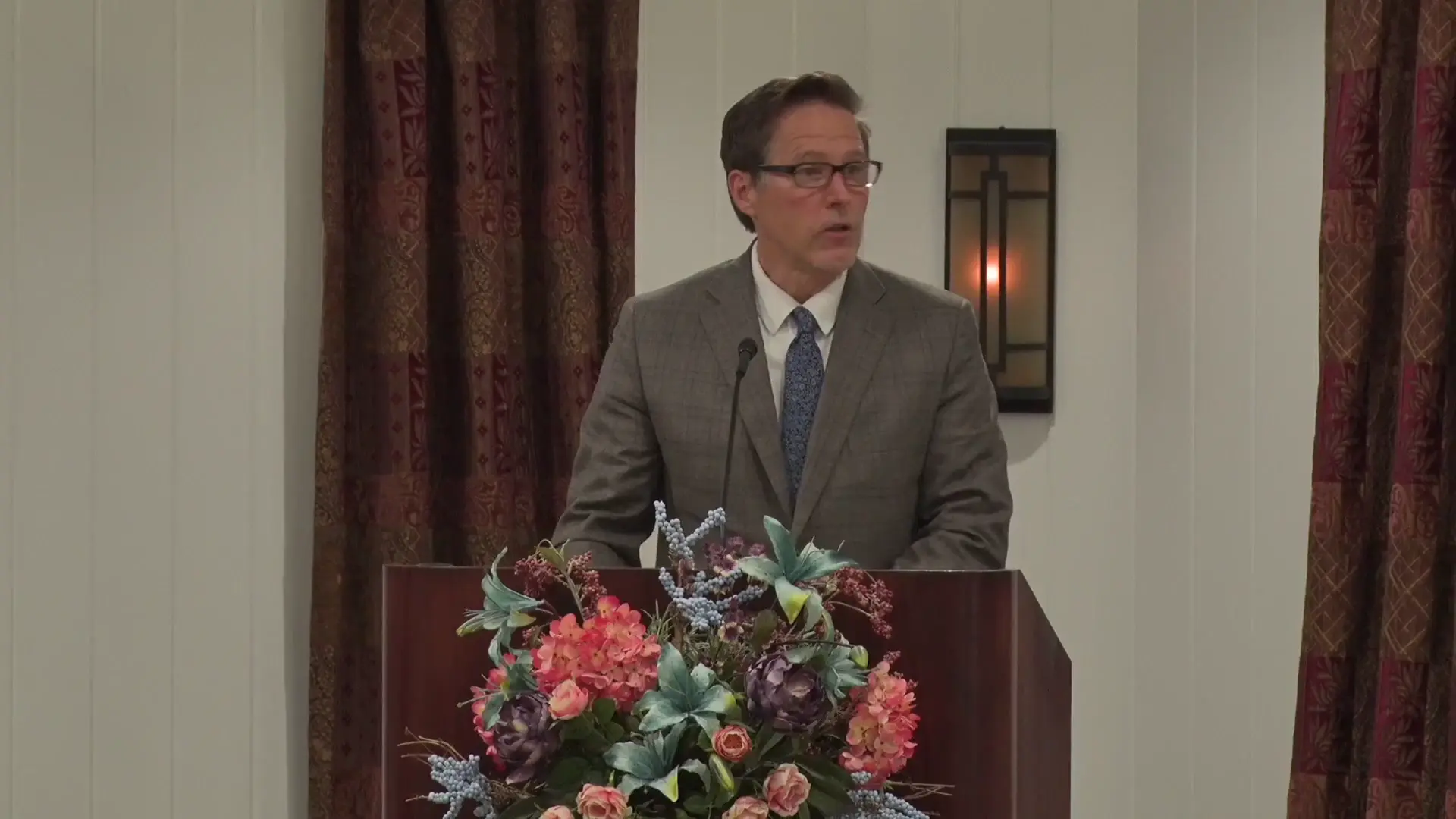Filter by Categories
Carefully Tending and Keeping God's Extraordinary Blessings
Feast of Tabernacles Sermon by Mark SchindlerGod has given us extraordinary blessings, and with them comes the responsibility to tend and keep them with thoughtful care. During this sacred Feast, we are set apart from an increasingly evil world, and we must use this holy time diligently to strengthen the unity of the body of Christ. We cannot afford to regret missing any of His blessings by failing to see their value or by carelessly misusing them. Our obligation is to remain within the place of safety, which is His holy time, and to use it wisely. We must tend and keep these precious blessings by staying close to Him, discerning the words of truth, and assembling together with brethren of like mind, not just on specific days but throughout all the time we are given. This includes stirring each other to love and noble activities, and considering those who cannot be present with us, supporting them through prayer and other means. God is carefully working to bring us to the place He desires for us, and we must not become world-weary or slip in our duty to tend and keep His investment in us. Recognizing and faithfully tending to these extraordinary blessings with maximum effort is essential, especially during this holy time, as we prepare to be holy as He is holy.

Am I My Brother's Keeper?
Sermon by Bill OnisickBelievers are crafted to be the caretakers of all that belongs to God, accountable for how we serve, nurturing both His creation and His people.
The Bible and the Environment
'Prophecy Watch' by Richard T. RitenbaughIs God an environmentalist? Should Christians care about the ecological health of the earth and its inhabitants? Here's what the Bible says about the environment.
The Global Environmental Ethic (Part Three)
Commentary by Martin G. CollinsThe UN Environmental Project espouses an environmental ethic, an eco-spirituality designed to enforce a global reference for earth and an international earth sabbath.
Genesis 3:17-19: Consequences for Adam
Sermon by Richard T. RitenbaughAdam sinned, having abdicated his leadership position. His posterity has been cursed with overwhelming toil just to stay ahead. We are perfected by hardship.

This Land Is Our Land
'Prophecy Watch' by Mike FordMore and more land is owned by the government—a situation that contradicts the biblical principles concerning individual land ownership.
The Ship Is Yours
Sermon by Mark SchindlerJust as the captain of a ship wants decision-makers, not just order takers, God expects us to make decisions in accordance with His will.
The Religion of Climate Change
Feast of Tabernacles Sermon by Mike FordBeing good stewards of the earth should not lead to the imbalanced practice of making mother-earth our goddess. Rejecting the Creator brings calamity.
The Right Use of Power
Sermon by John W. RitenbaughWith dominion comes responsibility to maintain. The sad history of mankind shows that he has mismanaged his power, bringing about disease, war, and famine.
Animal Idolatry
'Prophecy Watch' by Mike FordHave the animal rights groups gone too far? This movement borders on—if not transgresses—the line between concern and idolatry.
On Earning Wealth
Sermonette by John W. Ritenbaugh (1932-2023)The three principles for acquiring prosperity (diligently working, wisely managing what one has earned, and meticulously saving) all militate against laziness.
His Own Vine and Fig Tree
Feast of Tabernacles Sermon by Richard T. RitenbaughProperty rights will be held sacrosanct during the Millennium. God brings His people back to their own land, and to restore it to be like the Garden of Eden.
Why Be Industrious?
Sermonette by John W. RitenbaughTraining a child to be industrious helps him to be successful, which in turn promotes a stable family, community, nation and will transfer into God's Kingdom.
Creation Stewardship
Feast of Tabernacles Sermon by Martin G. CollinsWe as Christians should strive to be the most conscientious environmentalists or creationists in the world because the earth and its fullness are the Lord's.
Magic Doesn't Work (Part One)
Sermon by Richard T. RitenbaughWhile God is consistently depicted as working, magic seemingly provides a shortcut that bypasses overcoming and growth, attaining something for nothing.
Government (Part One)
Sermon by John W. RitenbaughGod intended government to be a positive force of bringing order out of chaos, keeping on a straight course, educating, and edifying with necessary laws.
Imagining the Garden of Eden (Part Eight)
Sermon by Richard T. RitenbaughThe Garden of Eden was the perfect place for mankind to get its start, a place where Adam and Eve could become acquainted with God and developed godliness.
Our Awesome Destiny (1993)
Feast of Tabernacles Sermon by John W. RitenbaughMan's destiny is to have dominion over the entire universe. Preparation for this awesome responsibility requires faithful stewardship over God's gifts.
Imagining the Garden of Eden (Part Nine)
Sermon by Richard T. RitenbaughThe command not to eat of the Tree of the Knowledge of Good and Evil is universal and for all time, applying to each and every one of us.
God, Socialism, and Offerings
Sermonette by John W. RitenbaughSocialism is enforced slavery to government, founded on no religious principle, but on the poisonous fruits of 'progressive' humanism.